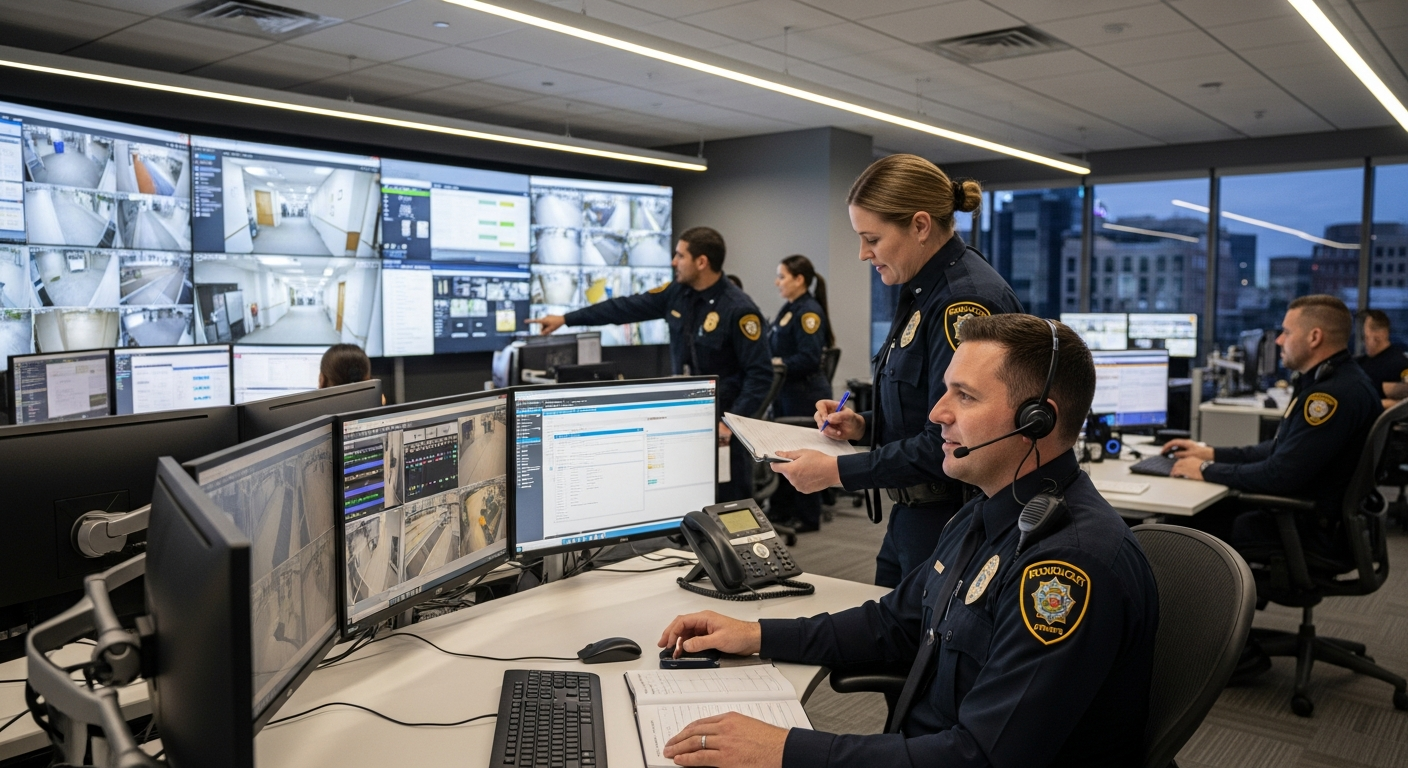Security Work Abroad: roles, settings, and practical considerations
Working in international security offers diverse career opportunities across multiple continents, from corporate facilities to diplomatic missions. Security professionals abroad encounter varied environments, regulations, and cultural contexts that require adaptability and specialized skills. Understanding the fundamental aspects of international security work helps professionals prepare for roles that demand both technical expertise and cultural awareness in foreign settings.

What are common sites and shift patterns for security work?
International security positions span numerous environments, each with distinct operational requirements. Corporate headquarters, manufacturing facilities, and technology centers frequently employ security personnel for 8-12 hour shifts, often rotating between day and night coverage. Diplomatic missions and embassy compounds typically operate 24-hour security protocols with three-shift rotations, requiring continuous presence due to heightened security concerns.
Construction sites, particularly those involving international development projects, commonly utilize security teams working 12-hour shifts with extended rotation periods lasting several weeks or months. Hotels, resorts, and entertainment venues in tourist destinations often require flexible scheduling that adapts to peak season demands, with shifts ranging from standard 8-hour coverage to extended weekend assignments.
Maritime security positions aboard vessels or port facilities frequently involve longer deployment periods, with personnel working several weeks consecutively before extended leave periods. Mining operations and oil installations in remote locations typically employ fly-in, fly-out rotations where security staff work continuous shifts for 14-28 days followed by equivalent rest periods.
How do screening, patrolling, and reporting basics apply internationally?
Core security functions remain consistent across international assignments, though implementation varies by location and local regulations. Screening procedures involve verifying identification, conducting searches when authorized, and monitoring access points using both manual techniques and technology systems. International facilities often require additional documentation checks, including visa verification and clearance level confirmation for various security zones.
Patrolling techniques adapt to local infrastructure and cultural considerations while maintaining systematic coverage of assigned areas. Security personnel conduct both fixed-post monitoring and mobile patrols, documenting observations through written reports, digital logs, or integrated security management systems. International assignments may require familiarity with multiple reporting formats to satisfy both local regulatory requirements and corporate standards.
Incident documentation follows established protocols while accommodating local legal frameworks and language requirements. Security professionals must understand chain-of-custody procedures, evidence handling protocols, and emergency response coordination that may involve local authorities, embassy personnel, or international security agencies depending on the assignment location.
What are licensing and training differences by country?
Security licensing requirements vary significantly across international jurisdictions, with some countries requiring extensive background checks, training certifications, and ongoing education requirements. European Union nations often recognize security qualifications between member states, though specific endorsements or additional training may be necessary. Countries like the United Kingdom require Security Industry Authority licensing, while Germany mandates completion of specialized security training programs.
Middle Eastern countries frequently require comprehensive background investigations and may restrict certain security roles to citizens or long-term residents. Australia and New Zealand have state-based licensing systems that may require separate applications for different regions, along with first aid certification and specific training modules. Asian markets show considerable variation, with some countries requiring local partnership or sponsorship for international security personnel.
Training standards range from basic classroom instruction to comprehensive programs covering legal authorities, emergency response, and cultural awareness. Some positions require specialized certifications in areas such as crowd control, executive protection, or technical security systems. Ongoing training requirements may include annual recertification, continuing education credits, or periodic skills assessments depending on local regulations.
Why are communication and de-escalation skills crucial abroad?
International security work demands heightened communication abilities due to language barriers, cultural differences, and varied social norms. Effective de-escalation techniques must account for cultural context, local customs, and appropriate interaction styles that may differ significantly from domestic practices. Understanding non-verbal communication patterns, personal space preferences, and conflict resolution approaches helps security personnel manage situations professionally.
Language proficiency beyond basic conversational ability becomes essential for accurate incident reporting, emergency coordination, and daily operational communication. Many international assignments require at least intermediate fluency in local languages, with some positions demanding professional-level communication skills for liaison work with local authorities or corporate management.
Cultural competency training helps security professionals navigate diverse environments while maintaining operational effectiveness. This includes understanding religious considerations, local holidays and customs, appropriate dress codes, and interaction protocols that respect local traditions while fulfilling security responsibilities.
What health, safety, and situational awareness considerations apply?
International security assignments require enhanced situational awareness due to unfamiliar environments, different threat profiles, and varying emergency response capabilities. Security personnel must understand local crime patterns, political stability factors, and environmental hazards that may not exist in their home countries. This includes awareness of natural disaster risks, infrastructure limitations, and healthcare system capabilities.
Health considerations encompass both preventive measures and emergency preparedness, including required vaccinations, medical insurance coverage, and access to appropriate healthcare facilities. Some assignments in remote locations or regions with limited medical infrastructure require additional health screening, specialized medical training, or evacuation insurance coverage.
Personal safety protocols must adapt to local conditions while maintaining professional responsibilities. This includes understanding local laws regarding self-defense, emergency communication procedures, and evacuation protocols. Security personnel should maintain awareness of political developments, social tensions, and security threats that could affect both their assignment location and broader regional stability.
International security work offers rewarding career opportunities for professionals prepared to adapt their skills to diverse global environments. Success in these roles depends on thorough preparation, cultural awareness, and commitment to ongoing professional development. Understanding the practical considerations outlined above helps security professionals make informed decisions about international career opportunities while ensuring they can contribute effectively to global security operations.




